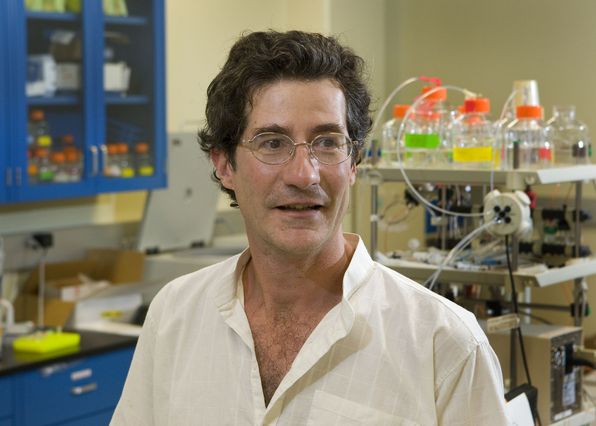Giovanni Zocchi, professor of physics at UCLA, was awarded the 2017 Foresight Institute’s Feynman Prize – Theory at the Feynman Prize dinner at the Atomic Precision for Healthspan and Longevity workshop Sept. 16 in Palo Alto, California.
The award, in honor of physicist Richard Feynman, celebrates a researcher whose work has most advanced the achievement of Feynman’s goal for nanotechnology: molecular manufacturing, defined as the ability to construct atomically precise products in which individual atoms are positioned according to a design. Separate prizes are awarded for theoretical research and experimental work; Zocchi is honored for his theoretical research.
Zocchi received the theory prize for inventing a method called “nano-rheology,” a method to measure enzyme deformations smaller than an atom. Armed with this technique, he and his research team discovered that enzymes deform in a very peculiar way. Mechanically, they resemble “silly putty,” a solid that can bounce like a ping-pong ball, but that can also slowly flow like molasses. This property is called viscoelasticity.
Zocchi’s research is focused on the physics of biological macromolecules, such as proteins and DNA; DNA is the molecule that encodes the master plan for the cell. His laboratory’s approach is informed by diverse areas of condensed matter physics, including materials science, nonlinear dynamics, nanoscience and polymer physics.
Zocchi credits the UCLA students in his laboratory for the research for which he was awarded the prize.
Foresight advocates the kind of nanotechnology that will transform our future, in such areas as medicine and the environment. Foresight’s mission is to speed development of nanotechnology, artificial intelligence and other key fundamental technologies, promote beneficial uses of these revolutionary technologies, and reduce misuse and accidents potentially associated with them.
Read more about Zocchi’s research on his website and read about his laboratory’s nanomechanical measurements of unprecedented resolution on protein molecules.




